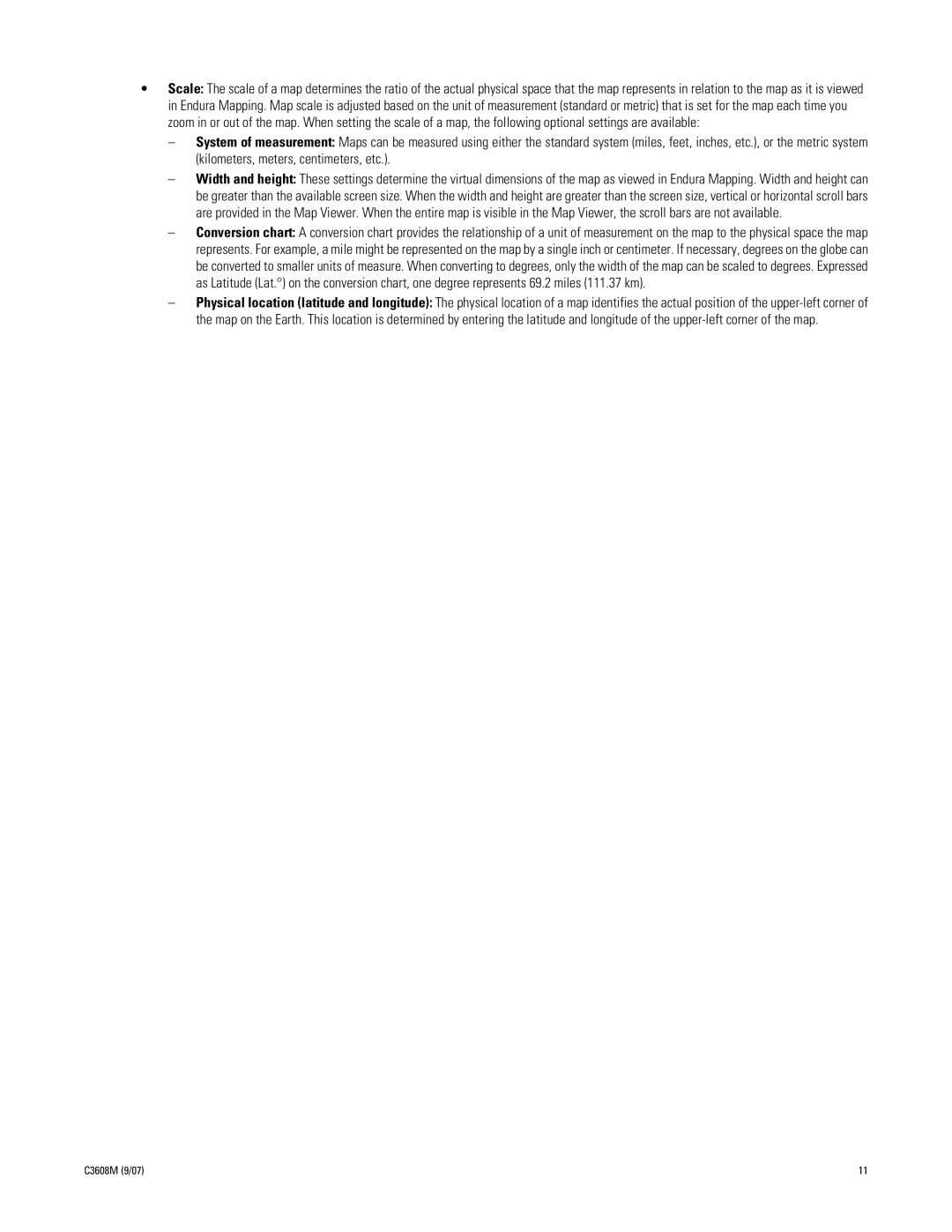•Scale: The scale of a map determines the ratio of the actual physical space that the map represents in relation to the map as it is viewed in Endura Mapping. Map scale is adjusted based on the unit of measurement (standard or metric) that is set for the map each time you zoom in or out of the map. When setting the scale of a map, the following optional settings are available:
–System of measurement: Maps can be measured using either the standard system (miles, feet, inches, etc.), or the metric system (kilometers, meters, centimeters, etc.).
–Width and height: These settings determine the virtual dimensions of the map as viewed in Endura Mapping. Width and height can be greater than the available screen size. When the width and height are greater than the screen size, vertical or horizontal scroll bars are provided in the Map Viewer. When the entire map is visible in the Map Viewer, the scroll bars are not available.
–Conversion chart: A conversion chart provides the relationship of a unit of measurement on the map to the physical space the map represents. For example, a mile might be represented on the map by a single inch or centimeter. If necessary, degrees on the globe can be converted to smaller units of measure. When converting to degrees, only the width of the map can be scaled to degrees. Expressed as Latitude (Lat.°) on the conversion chart, one degree represents 69.2 miles (111.37 km).
–Physical location (latitude and longitude): The physical location of a map identifies the actual position of the
C3608M (9/07) | 11 |
